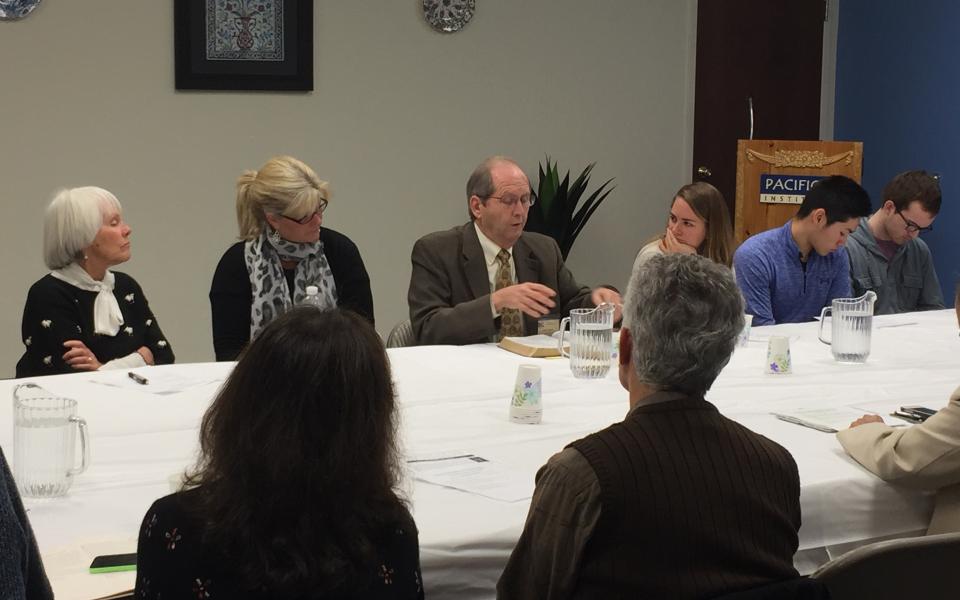
There are special moments in life when things just click, when something you thought you knew takes on new life.
That happened for me yesterday with compassion.
It's not that before yesterday I didn't think compassion was important -- or that I didn't seek to practice it everyday. On the contrary, I was doing both of those things. But yesterday, sitting around a table with 25 people, all seeking to understand the role of compassion in their religion and spiritual journey, my understanding of compassion ballooned.
Garth Pickett, a board member of the URI Cooperation Circle Silicon Valley Interreligious Council (SiVIC) and member of the Church of Jesus Christ of Latter Day Saints, shared with the group that, in the Bible, the word compassion is mostly used to describe a feeling while compassion in action is charity.
As someone raised in the Christian tradition, this set off about a hundred light bulbs in my brain. Charity -- that is the word used in that most famous and central of Bible passages -- 1 Corinthians 13.
"Charity suffereth long, and is kind; charity envieth not; charity vaunteth not itself, is not puffed up, Doth not behave itself unseemly, seeketh not her own, is not easily provoked, thinketh no evil; Rejoiceth not in iniquity, but rejoiceth in the truth; Beareth all things, believeth all things, hopeth all things, endureth all things. Charity never faileth." (1 Cor. 13:4-8a)
As the afternoon progressed, we embarked on a group discussion with brothers and sisters from different faiths sharing their religion's view on compassion as part of an event hosted by SiVIC's and the Pacifica Institute in celebration of World Interfaith Harmony Week and as part of the Compassion Games' Interfaith League.
"In seeing anyone else who is not at your level, your heart should cry," shared Girish Shah, a member of the Jain faith and SiVIC board member. "If I see you as the 'other' is is a violence -- violence of thought. We should see each person as a reflection of ourselves," he continued.
Our Buddhist sister shared about the centrality of compassion in Buddhism and also emphasized the difference between compassion and pity -- an entire conversation in its own right.
Our Unitarian brother shared that, in his tradition, they teach the inherent work and dignity of all. And our Unification brother passed along a central teaching of his faith, "When you see as a parent, there are no enemies."
As we sat around that table, each sharing out of the heart and goodness of their faith, we became bound together in this mission of compassion for all. And I realized, in a new and deeper way, the Almighty's calling of us all to a way and life of compassion.